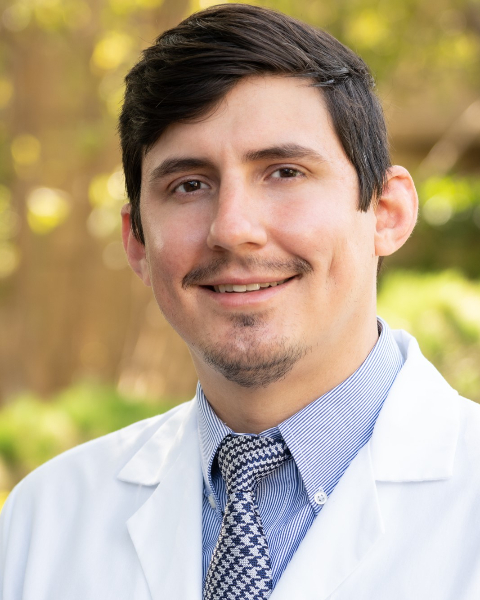PQA 07 - PQA 07 Gastrointestinal Cancer and Sarcoma/Cutaneous Tumors Poster Q&A
2976 - A Randomized, Phase II Clinical Trial of TIme-Restricted Eating vs. Dietary Counseling to Improve Effect of Radiotherapy (TIDIER)
Tuesday, October 1, 2024
12:45 PM - 2:00 PM ET
Location: Hall C
Screen: 29

Nicholas Eustace, MD, PhD
City of Hope National Medical Center
Duarte, CA
Presenter(s)
N. J. Eustace1, Z. Huang2, T. Abuali1, B. Mercier2, Q. Feng1, C. Li2, C. J. Ladbury1, N. Correnti2, P. Tang2, E. Kurniawan2, A. Tam1, J. R. Liu1, A. Chehrazi-Raffle3, A. Tripathi3, S. K. Pal3, W. Yip4, C. Lau4, S. Maroongroge1, Y. Liu1, S. M. Glaser1, S. V. Dandapani1, Y. J. Chen1, J. Y. C. Wong1, P. Lee5, T. M. Williams1, S. Shuck2, V. Sun6, M. Mancini2, P. Frankel7, T. B. Dorff3, and Y. R. Li1; 1Department of Radiation Oncology, City of Hope National Medical Center, Duarte, CA, 2City of Hope National Medical Center, Duarte, CA, 3Department of Medical Oncology & Therapeutics Research, City of Hope National Medical Center, Duarte, CA, 4City of Hope Comprehensive Cancer Center, Duarte, CA, 5Department of Radiation Oncology, Lennar Foundation Comprehensive Cancer Center, City of Hope National Medical Center, Irvine, CA, 6Division of Population Sciences, City of Hope National Medical Center, Duarte, CA, 7Department of Information Sciences, City of Hope National Medical Center, Duarte, CA
Purpose/Objective(s): Ionizing radiation therapy (RT) acts through the generation of reactive oxygen species (ROS) and the consequent formation of lethal double-strand DNA breaks. Time-restricted diet (TRD), popularly known as intermittent fasting, may reduce ROS generated during physiologic mitochondrial respiration, the largest intracellular source of ROS in normal tissues. TRD mitigates intracellular and systemic ROS production pre-clinically and both reduces hematologic toxicity and improves pathologic complete response during chemotherapy in prospective Phase II studies. We hypothesize that compared to patients receiving routine dietary counseling, TRD can mitigate DNA damage in peripheral blood mononuclear cells (PBMCs) and normal-tissue toxicity during pelvic RT. Materials/
Methods: This single-institution, open-label, phase II randomized clinical trial, approved by the City of Hope Institutional Review Board, will enroll 48 p</span>atients receiving pelvic RT to dietary counseling or TRD (1:1). Patients age >18 and ECOG 0-2 receiving curative-intent RT or chemo-RT for high-risk/node-positive or biochemically recurrent prostate cancer, locally advanced cervical cancer or locally advanced rectal cancer are eligible. Exclusion criteria include prior pelvic RT, BMI <21, pregnancy, insulin-dependent diabetes, and current adherence to a macronutrient or calorically restricted diet. On days of RT, patients randomized to TRD fast for a minimum of 14 hours (from 6-8 hours before until 4-6 hours after RT). All patients meet with a registered dietician with 20+ years of experience in radiation oncology to discuss preventative dietary recommendations without macronutrient or caloric restrictions. Patients are offered weekly meetings with the dietician during RT and receive on-demand dietary education through the Oncpatient Companion mobile phone application, which also collects food frequency questionaries and quality of life surveys. Blood, urine, and stool are collected (pre-RT, Day 1, Day 12, and Day 25 of RT, and at 12/24/52 weeks post-RT). Toxicity (CTCAEv5.0) and quality of life surveys ie. EORTC-PR25 (prostate cancer), EORTC-CX24 (cervical cancer), and EORTC-CR29 (rectal cancer) are collected at the same time points. The primary endpoint is to compare accumulated DNA damage in PBMCs after pelvic RT between the two arms and to determine the feasibility and tolerability of TRD during pelvic RT. Secondary endpoints include clinical toxicity and patient-reported quality of life. Exploratory outcomes include progression-free survival, serum cytokine levels, stool microbiota diversity and urine DNA adducts.
Results: TBD
Conclusion: TBD
Purpose/Objective(s): Ionizing radiation therapy (RT) acts through the generation of reactive oxygen species (ROS) and the consequent formation of lethal double-strand DNA breaks. Time-restricted diet (TRD), popularly known as intermittent fasting, may reduce ROS generated during physiologic mitochondrial respiration, the largest intracellular source of ROS in normal tissues. TRD mitigates intracellular and systemic ROS production pre-clinically and both reduces hematologic toxicity and improves pathologic complete response during chemotherapy in prospective Phase II studies. We hypothesize that compared to patients receiving routine dietary counseling, TRD can mitigate DNA damage in peripheral blood mononuclear cells (PBMCs) and normal-tissue toxicity during pelvic RT. Materials/
Methods: This single-institution, open-label, phase II randomized clinical trial, approved by the City of Hope Institutional Review Board, will enroll 48 p</span>atients receiving pelvic RT to dietary counseling or TRD (1:1). Patients age >18 and ECOG 0-2 receiving curative-intent RT or chemo-RT for high-risk/node-positive or biochemically recurrent prostate cancer, locally advanced cervical cancer or locally advanced rectal cancer are eligible. Exclusion criteria include prior pelvic RT, BMI <21, pregnancy, insulin-dependent diabetes, and current adherence to a macronutrient or calorically restricted diet. On days of RT, patients randomized to TRD fast for a minimum of 14 hours (from 6-8 hours before until 4-6 hours after RT). All patients meet with a registered dietician with 20+ years of experience in radiation oncology to discuss preventative dietary recommendations without macronutrient or caloric restrictions. Patients are offered weekly meetings with the dietician during RT and receive on-demand dietary education through the Oncpatient Companion mobile phone application, which also collects food frequency questionaries and quality of life surveys. Blood, urine, and stool are collected (pre-RT, Day 1, Day 12, and Day 25 of RT, and at 12/24/52 weeks post-RT). Toxicity (CTCAEv5.0) and quality of life surveys ie. EORTC-PR25 (prostate cancer), EORTC-CX24 (cervical cancer), and EORTC-CR29 (rectal cancer) are collected at the same time points. The primary endpoint is to compare accumulated DNA damage in PBMCs after pelvic RT between the two arms and to determine the feasibility and tolerability of TRD during pelvic RT. Secondary endpoints include clinical toxicity and patient-reported quality of life. Exploratory outcomes include progression-free survival, serum cytokine levels, stool microbiota diversity and urine DNA adducts.
Results: TBD
Conclusion: TBD
